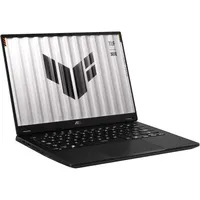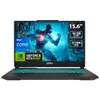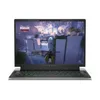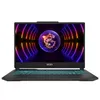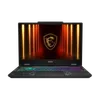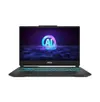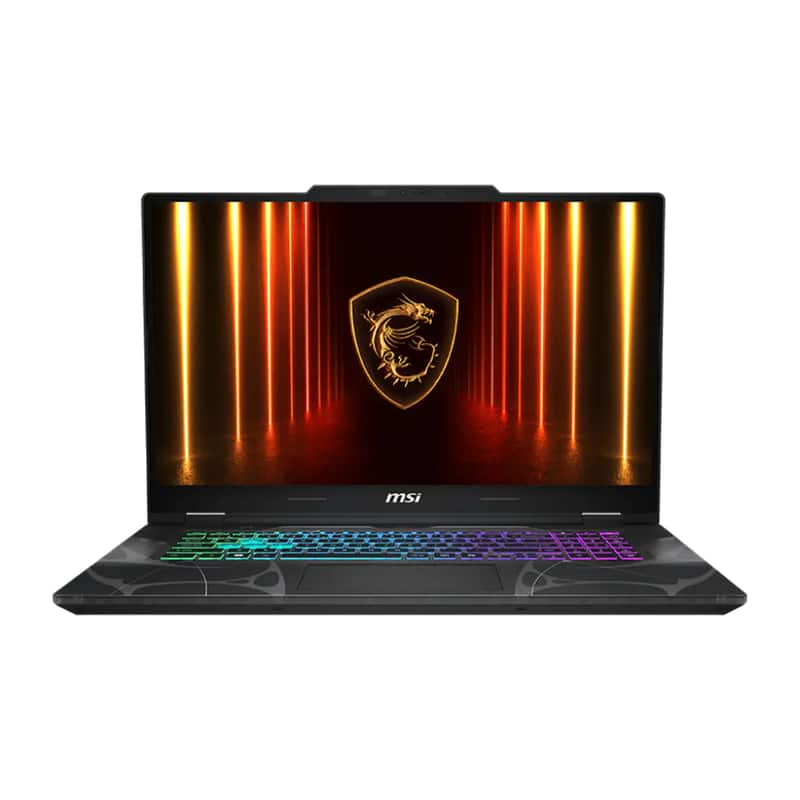RTX 5060 laptops vs RTX 4060 — is it actually worth buying one of the latest gaming laptops?
Future-proofing or waste of money?
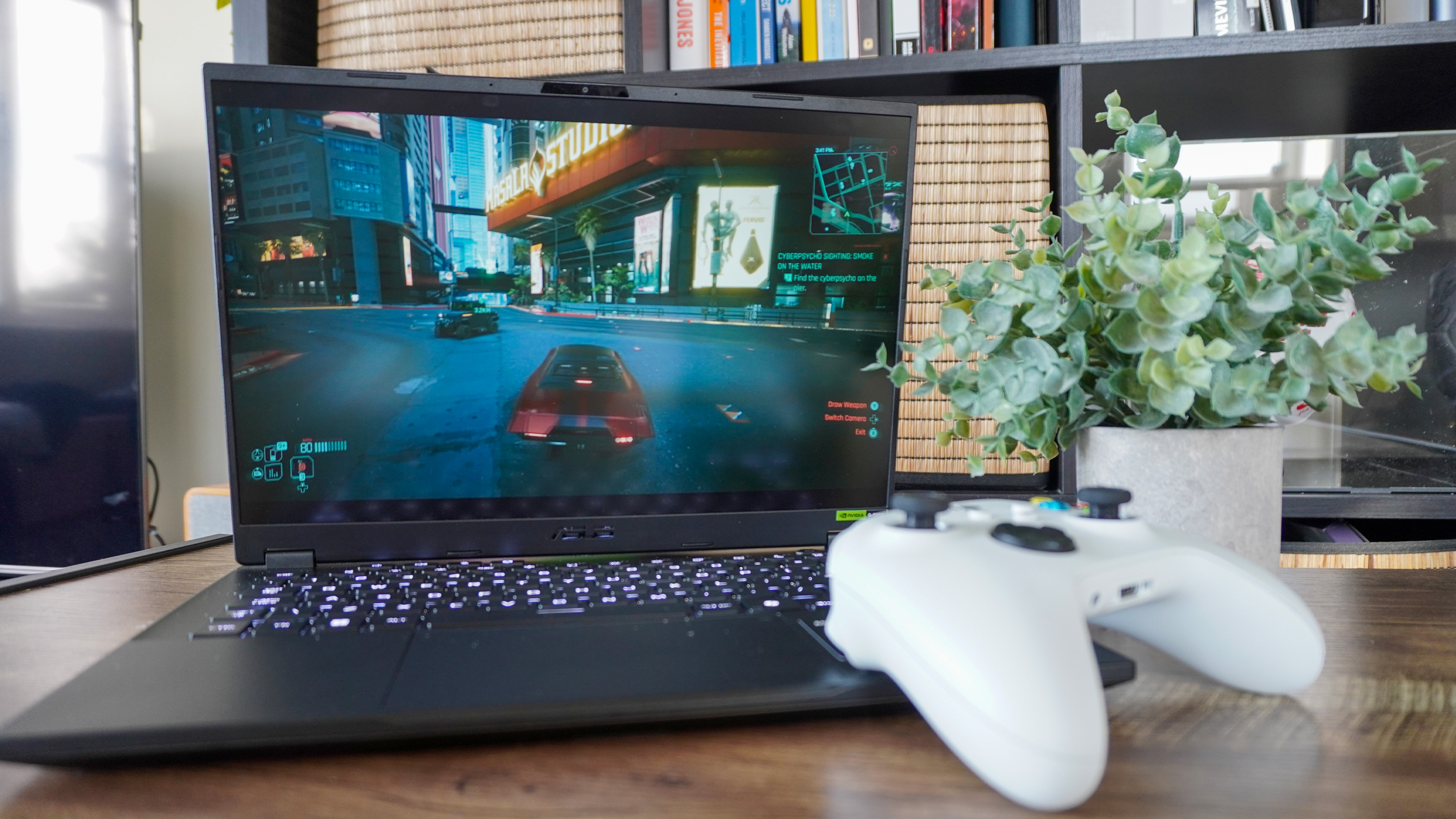
Here at Tom’s Guide our expert editors are committed to bringing you the best news, reviews and guides to help you stay informed and ahead of the curve!
You are now subscribed
Your newsletter sign-up was successful
Want to add more newsletters?

Daily (Mon-Sun)
Tom's Guide Daily
Sign up to get the latest updates on all of your favorite content! From cutting-edge tech news and the hottest streaming buzz to unbeatable deals on the best products and in-depth reviews, we’ve got you covered.

Weekly on Thursday
Tom's AI Guide
Be AI savvy with your weekly newsletter summing up all the biggest AI news you need to know. Plus, analysis from our AI editor and tips on how to use the latest AI tools!

Weekly on Friday
Tom's iGuide
Unlock the vast world of Apple news straight to your inbox. With coverage on everything from exciting product launches to essential software updates, this is your go-to source for the latest updates on all the best Apple content.

Weekly on Monday
Tom's Streaming Guide
Our weekly newsletter is expertly crafted to immerse you in the world of streaming. Stay updated on the latest releases and our top recommendations across your favorite streaming platforms.
Join the club
Get full access to premium articles, exclusive features and a growing list of member rewards.
I have a love/hate relationship with RTX 5060 gaming laptops — not with the laptops themselves, but the response to my thoughts have been…vocal to say the least. That being said, I still stand by what I said that the performance you can get at this price point (especially when you open the door to multi-frame gen) is impressive.
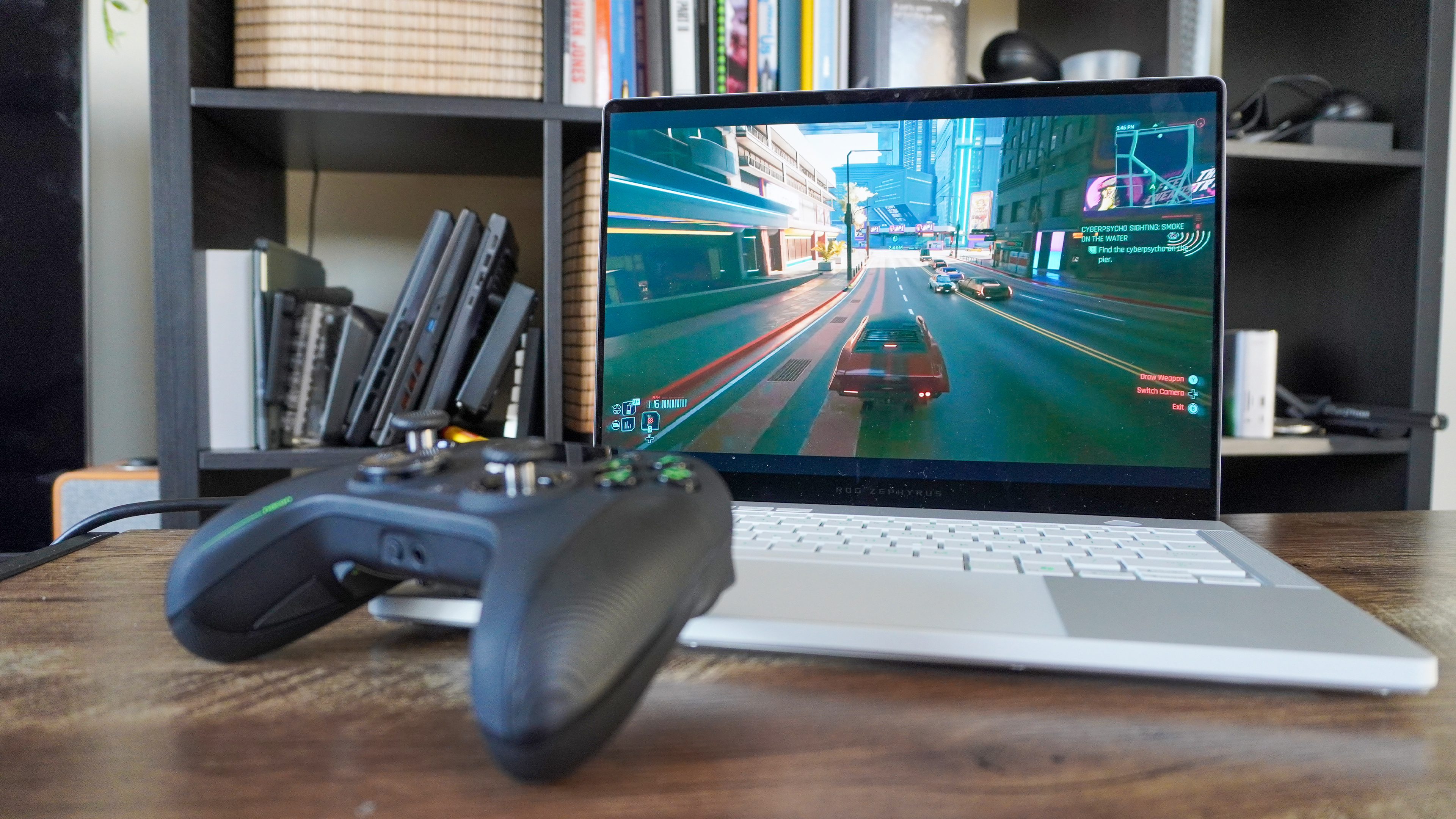
We test and review all the latest gaming laptops the second they launch to help you find the right one for your needs. So you can trust our expertise (and lab testing) that went into our ranked list of the best gaming laptops.
One thing I’ve always been clear on is if you already have an RTX 4060 laptop, then there is no need to upgrade. But you already knew that, and I’m not writing this for the crowd who are already happily gaming. I’m writing to you: the person who is keen to buy their first gaming laptop, maybe to pass the time at college or just generally get into games on-the-go.
Is it actually worth ponying up that extra cash for the RTX 5060 system? Or do you get enough of that great mid-range gaming experience while saving yourself some cash with the 4060? I’ve put this to the test with two Asus TUF Gaming A14s — the 2024 model with the last gen GPU and the 2025 option rocking the latest.
Let’s see where your money is best spent.
The latest TUF Gaming A14 sports the same sleek body as its predecessor, but steps up the GPU power with an RTX 5060, alongside an AMD Ryzen AI 7 CPU, 16GB RAM and a 1TB SSD.
Meanwhile, for just over $150 less, you can get the RTX 4060 version that packs a beefier CPU, the same amount of RAM and 1TB of storage too.
Let’s talk about the CPU
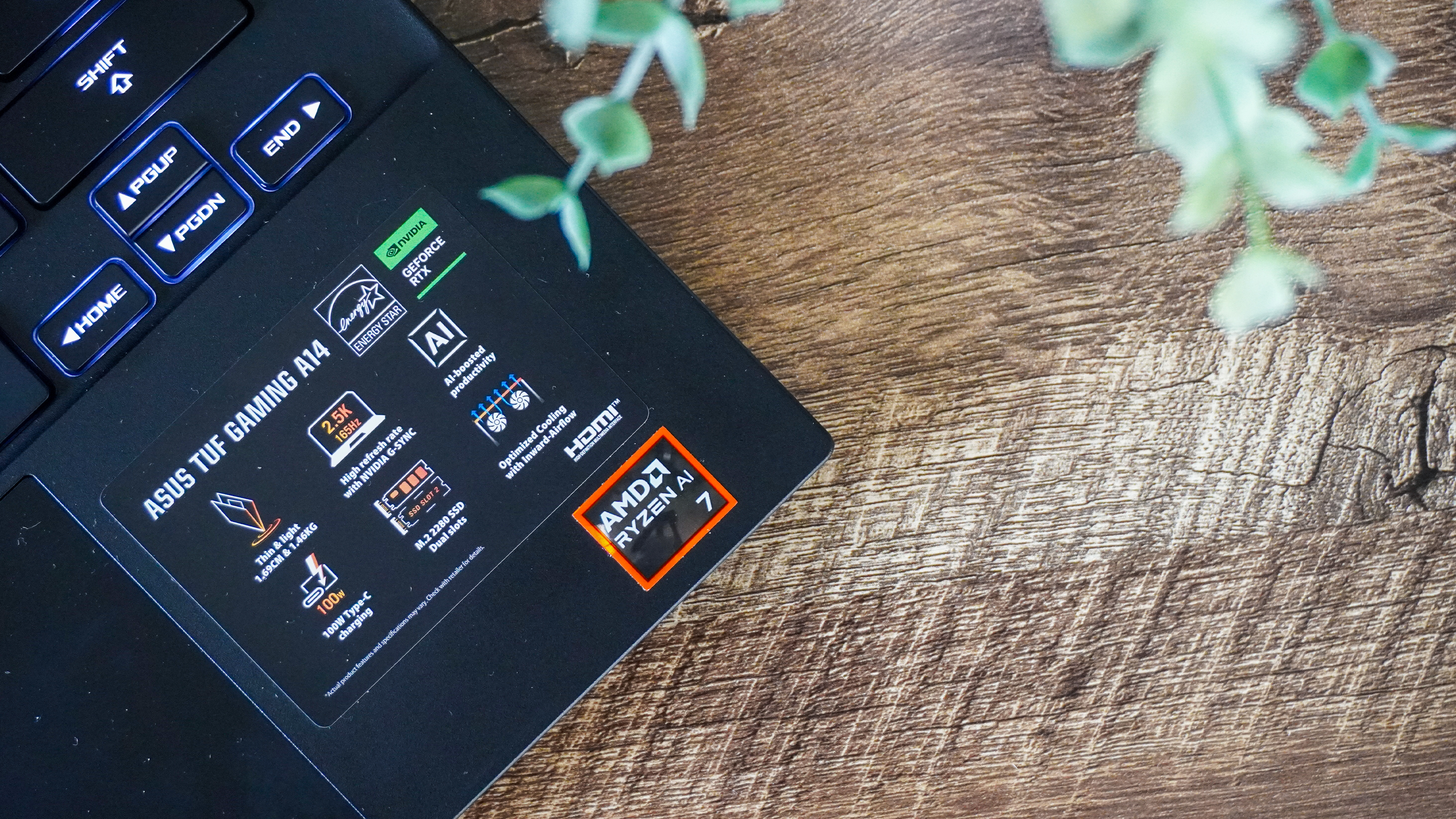
OK, why am I bringing up the CPU here? This is about graphics and gaming! Well, over the past 12 months, chipmakers have introduced their own mid-range CPUs that laptop makers have started adopting.
So while in the 2024 TUF Gaming A14, you’ll get the fully loaded AMD Ryzen AI 9 HX 370, the 2025 option has the Ryzen AI 7 350 — sporting 8 cores and 16 threads rather than the 12 cores and 24 threads of its bigger sibling.
This is something we’re seeing across the board of RTX 5060 laptops; as you well know, a strong CPU is going to be critical to ensuring that GPU doesn’t get bottlenecked. Fortunately, you won’t see much trouble happening here.
Get instant access to breaking news, the hottest reviews, great deals and helpful tips.
Laptop | Geekbench 6 single-core | Geekbench 6 multicore |
|---|---|---|
Asus TUF Gaming A14 (2024) | 2863 | 13729 |
Asus TUF Gaming A14 (2025) | 2878 | 12693 |
You’re seeing a step down in multicore performance, but not enough to hamper a laptop GPU. And single-core pretty much matches the zippiness needed to open apps quickly. Plus for those relying on some Copilot+ PC features, the NPU remains the same as the HX 370 at 50 trillion operations per second (TOPS) — ensuring some power efficiency (we are talking about gaming laptops after all).
Now, the graphics
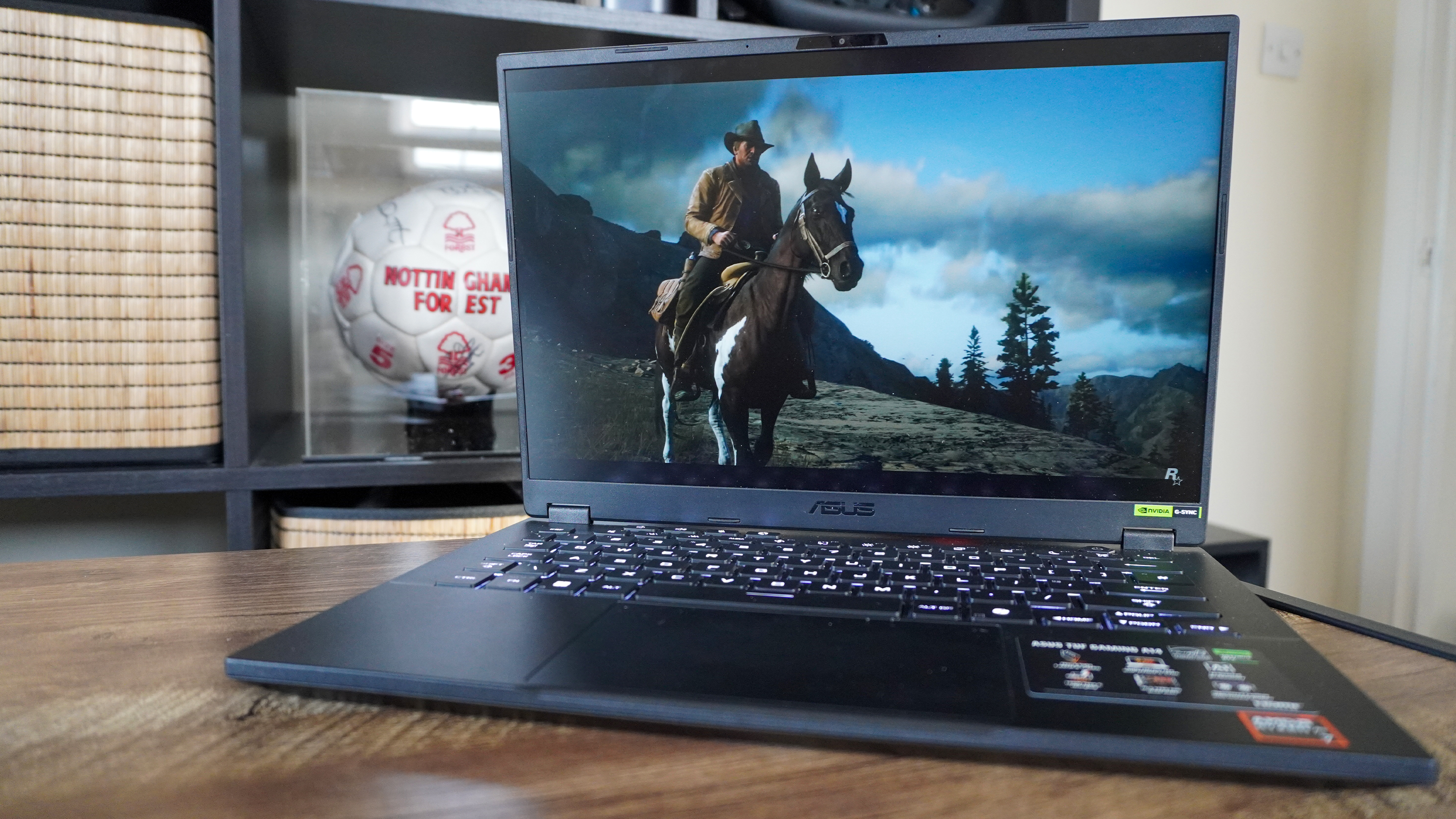
On paper, this should be a cakewalk. RTX 5060 brings GDDR7 video memory with a far faster bandwidth for loading in textures, alongside more cores across the board than its predecessor. And when I put it through the 3DMark motions, that shows.
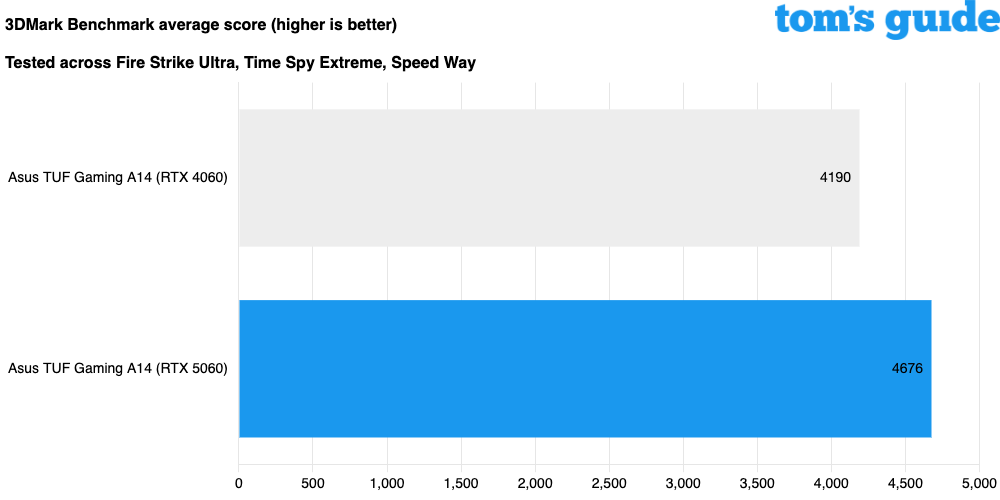
Of course, Asus is slightly putting its thumb on the scale here in terms of how much power it's pushing through the laptop. Thanks to a new cooling system that draws air through the gaps of the keyboard and out the bottom, the 2025 A14 gets 105W of power going to that GPU over 100W.
But when you put it to the games without any of the DLSS features turned on, that gap is shrunk (and in one case eliminated).
Game and settings | Asus TUF Gaming A14 (RTX 4060) | Asus TUF Gaming A14 (RTX 5060) |
|---|---|---|
Cyberpunk 2077 (1080p ray tracing ultra) | 29.45 FPS | 32.03 FPS |
Cyberpunk 2077 (1440p ray tracing ultra) | 14.97 FPS | 13.73 FPS |
Red Dead Redemption 2 (1080p Medium) | 60.15 FPS | 69.21 FPS |
Red Dead Redemption 2 (1440p Medium) | 36.38 FPS | 42.32 FPS |
A 10% bump in performance for $150 extra? That doesn’t seem like the best bang for your buck. Of course, this is before I get into the world of DLSS 4 and multi-frame gen, where you can see it performing much better on the 5060.
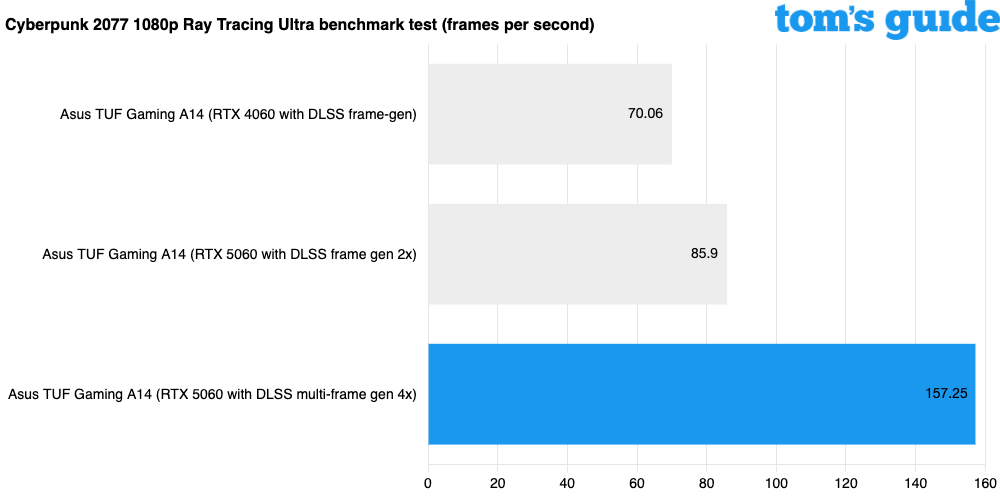
It’s definitely a value unlocker for cheaper gaming laptops, and while the raw rasterization may not have seen a drastic uplift, Nvidia has doubled down on AI-infused gaming for big numbers (provided you play in their garden of games).
Power efficiency?
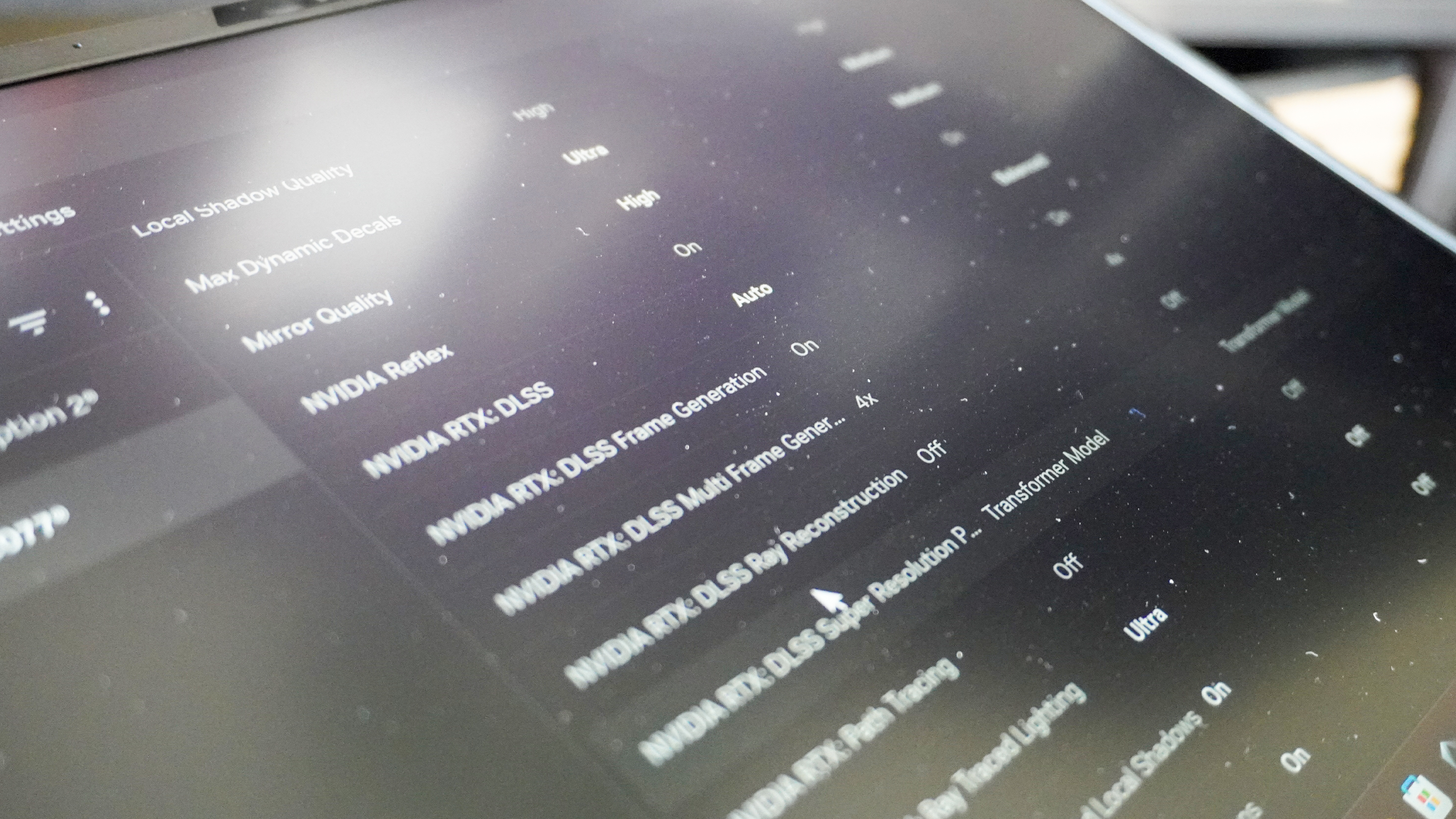
This one intrigued me. Gaming laptops have never had real stamina — given it’s gotta power a lot more components with more watts.
But Nvidia did make some claims about the RTX 50-series new Max Q technologies (things such as low-voltage GDDR7 memory support and advanced power gating to limit how much the GPU consumes) could increase battery life significantly.
In reality? Not so much.
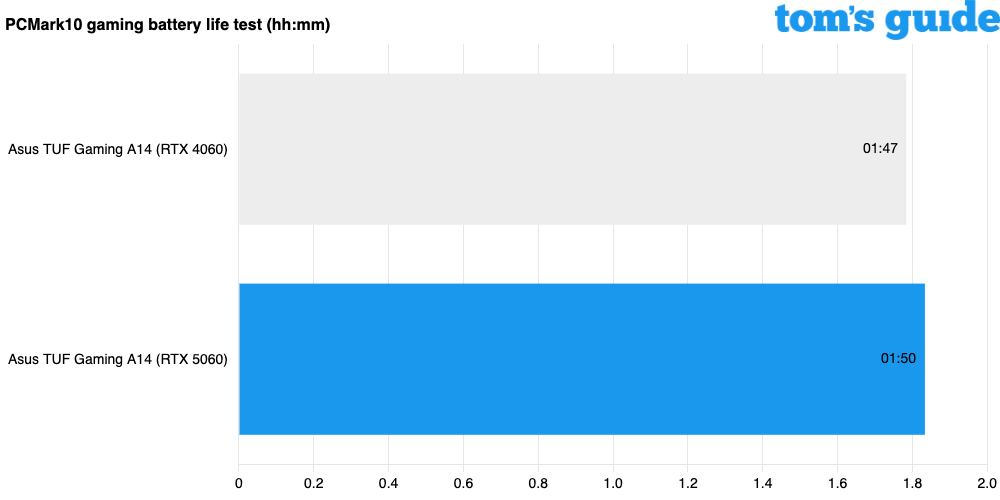
Now don’t get me wrong. In the world of gaming laptops, both of these are good numbers. To get nearly two hours away from the outlet is unheard of in a lot of its competition. But whatever was being promised hasn’t really materialized here.
Bottom line
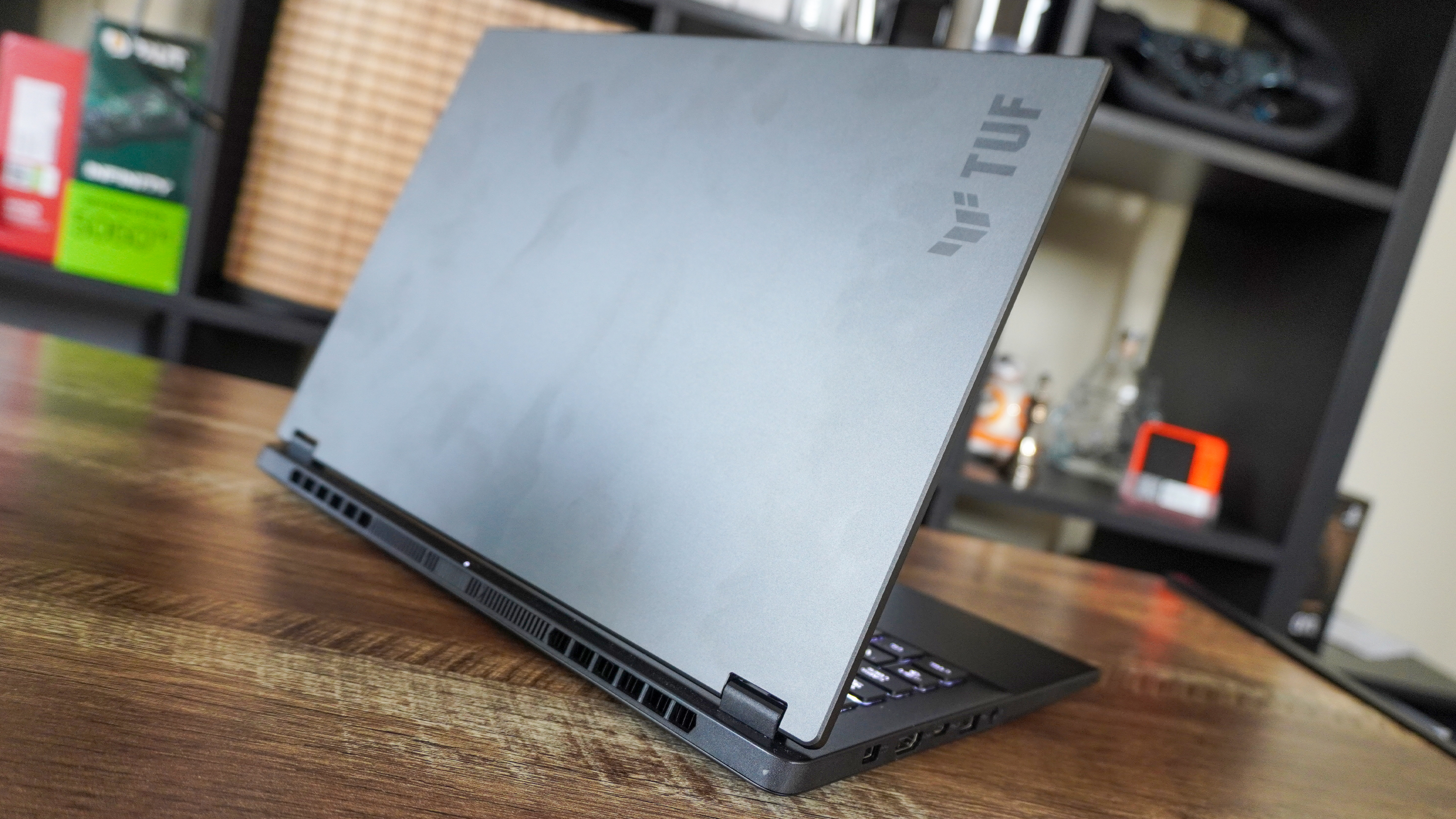
So I’m left with a bit of a conundrum. RTX 5060 gaming laptops are indeed faster, but are they fast enough to warrant someone getting into this space for the first time paying extra? I don’t think so.
And the TUF Gaming A14 is on the pricier side of this spectrum. You can find them for as low as $1,199 in the case of the Lenovo LOQ 15, while the 5060 systems seem to be starting at a minimum of $1,349 thanks to a surprisingly impressive $450 saving on the Asus ROG Zephyrus G14!
But for you, the person looking to see what you should go for, you’re still going to have a damn good time gaming on 4060 for a few years to come. This is the wiser choice with your money.
Follow Tom's Guide on Google News to get our up-to-date news, how-tos, and reviews in your feeds. Make sure to click the Follow button.
More from Tom's Guide
- I played games for 100 hours on Intel Arc B580 — it proved to me that GPUs are Intel's way back from the brink
- LG Display unveils 'world's fastest' OLED monitor — get ready for 720Hz
- Portable SSD makers don’t want you to know this money-saving hack — here’s how to save up to $180

Jason brings a decade of tech and gaming journalism experience to his role as a Managing Editor of Computing at Tom's Guide. He has previously written for Laptop Mag, Tom's Hardware, Kotaku, Stuff and BBC Science Focus. In his spare time, you'll find Jason looking for good dogs to pet or thinking about eating pizza if he isn't already.
You must confirm your public display name before commenting
Please logout and then login again, you will then be prompted to enter your display name.
 Club Benefits
Club Benefits










